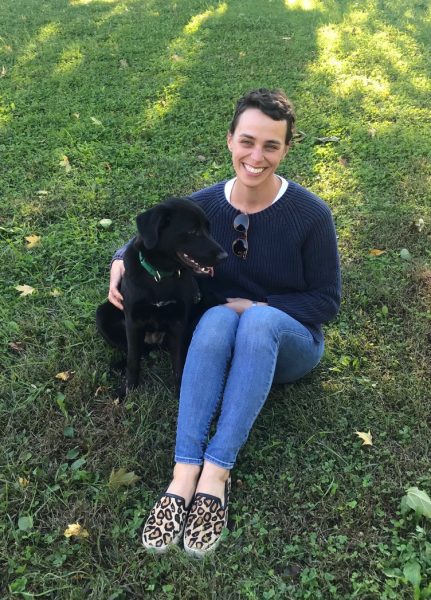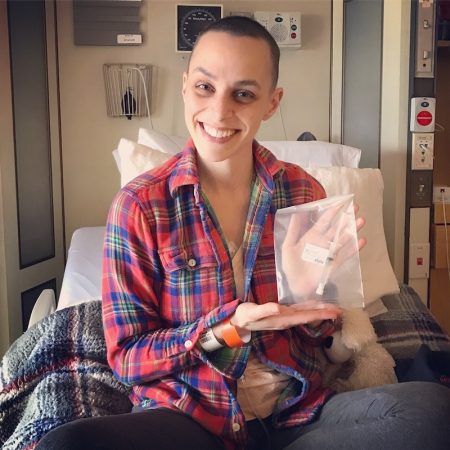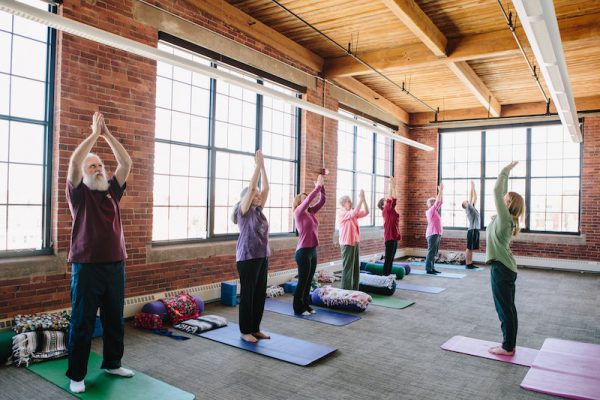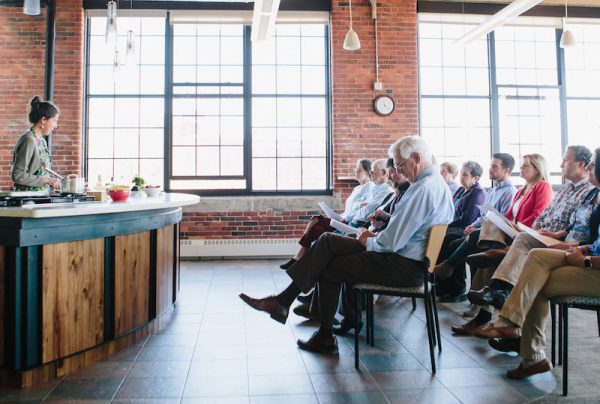Kate Hedlund-Groden moved to Maine from Massachusetts a few months ago looking for a fresh start. One of the first things she did was a search for local cancer support groups. She found the Dempsey Center, which offered not only a support group but
The program is called What Now? and is offered monthly, alternating between the Center’s Lewiston and Portland locations. It’s led by Karen Page, a licensed
It’s designed for folks who have finished their cancer treatment or are going to be finishing their cancer treatment fairly soon. What we have found is that people feel incredibly well supported during cancer treatment with their doctors and nurses and social workers and the navigators. Once the treatment is over, there’s a sense of celebration that it’s complete, but at the same time all those people are no longer as accessible to them. We’re trying to fill that gap — to offer them people they can count on and reach out to after treatment ends.
Karen Page, LSW, Dempsey Center
Kate understands all too well what Karen described. In 2017, she was diagnosed with a type of non-Hodgkin’s lymphoma called diffuse large B-cell. She underwent treatment at Beth Israel Hospital in Boston from September 2017 to May 2018. After two different lines of chemotherapy failed, she participated in a CAR T-cell clinical trial. It’s a form of immunotherapy.
It’s a two-part process. They hook you up to a dialysis machine and run all of your blood to first collect T-cells and then plasma cells or vice versa. They shipped my T-cells to a lab in Seattle where they spent about four weeks being re-engineered. Once they were all done they brought me back to the hospital. I had two days of chemo and then a day of rest to wipe out whatever remaining T-cells were in my system. And then I had two infusions, one was over four minutes, then there was a two-hour break and then we did another four-minute infusion. They monitored me closely for 14 days after that. I was in the hospital for about three weeks. I did develop some minor side effects, some headaches, a fever but they gave me medicine to reverse them. On day 21 I was able to go home. I received that treatment in May 2018 and 28 days later, I had a scan and have been in remission ever since. I have regular scans and blood work still, but the frequency has lessened.
Kate Hedlund-Groden
Kate’s cancer was discovered by accident. She was in her early 30s, physically active and feeling healthier than ever. A sore shoulder, from lifting her kayak off the roof of her car, brought her to the doctor’s office. An x-ray showed that her shoulder was fine, but
The next day the radiologist, after reviewing the x-ray, said there was an abnormal contour in my chest and suggested that I get a CT scan to get a better look at it. It revealed that there were tumors and inflamed lymph nodes throughout my entire body, my entire torso.
Overnight, Kate’s life changed and suddenly revolved around survival. She had to quit working because her schedule was filled with doctor’s appointments, blood, and other tests, treatments, and hospital stays. And then, after nearly a year of this intense focus, she was in remission and wondering what now?
Shortly after I was in remission, I developed pretty severe anxiety. While you’re in treatment you feel like you have an action plan, that you’re proactively doing something to make yourself healthier and to beat
the cancer . Then, when you do, it’s okay, where do we go from here? I felt at a loss. I didn’t trust my body because how did I not know that I was riddled with cancer? It’s scary because you don’t know how to go about in the world if it might cause cancer. It’s the food you eat, the products you put on your skin or wash with and it becomes this overwhelming uncertainty of how to navigate this new world and hope you never do anything that could make the cancer return.
So many questions. One of the goals of the Dempsey Center’s What Now? program is to help people like Kate find some answers and some reassurance. When I say people like Kate I mean people who, because of new treatments like the immunotherapy trial that put her in remission, are surviving their cancers.
Cancers that were once an automatic death sentence are being cured or treated as chronic diseases. It’s a good thing, a very good thing, but a lot of people have been left dangling, like Kate, wondering how to navigate life after treatment.
Karen says that with the What Now? program they’re trying to introduce the idea of survivorship care.
This is a beginning step. We hope that people will learn a little bit of information about what might be helpful for them and then give them some tools and some strategies to put those things into place in their
life, if it makes sense for them.
At the classes, people learn about resources and services in the community that could offer support, including the Dempsey Center. They talk about nutrition, movement, wellness, emotional issues — anything and everything.
We want to let people know what is available to them and what they may want to think about if it applies to them. They may feel good physically, but emotionally they’re having some struggles or vice versa. Maybe they’ve decided since their cancer diagnosis that they may want to change their diet a little bit. We provide some tools around how to do that in a supported way. So, really, it’s presenting some information, providing resources that might be able to help them with each of those topic areas. It’s a pretty simple format, honestly.
Oftentimes, it’s the simplest format that offers the most benefits. After just one class, Kate got answers to some of her questions about navigating her new life, learned about some great resources, and felt reassured sitting in a room with other people who were struggling with many of the same issues she was.
A new perspective
And as she continues to move on with her life, you can be sure she sees each moment through a different lens than she used to.
Oh, 100%, absolutely. The air smells a little sweeter. The sunshine feels a little warmer. The things that once caused me pause, I don’t give a second thought to anymore. I’m so glad to be back in society again, interacting with people, making new friends. It makes me think about how I want to spend my time and what’s worth fighting for. I live with a lot more intent now than I did previously.
Where to find What Now?
You’ll find the schedule for the What Now? program on the Dempsey Center website, as well as a ton of other free programs in Lewiston and South Portland. Registration is usually required.





As Kate’s Aunt and Godmother this article brought tears to eyes ! I am so grateful that my sweet niece, who has been through so much, so bravely has this community to help her with her ongoing emotional recovery . And give thanks every day that medical science has put her in remission. Love you so much Kate❤️